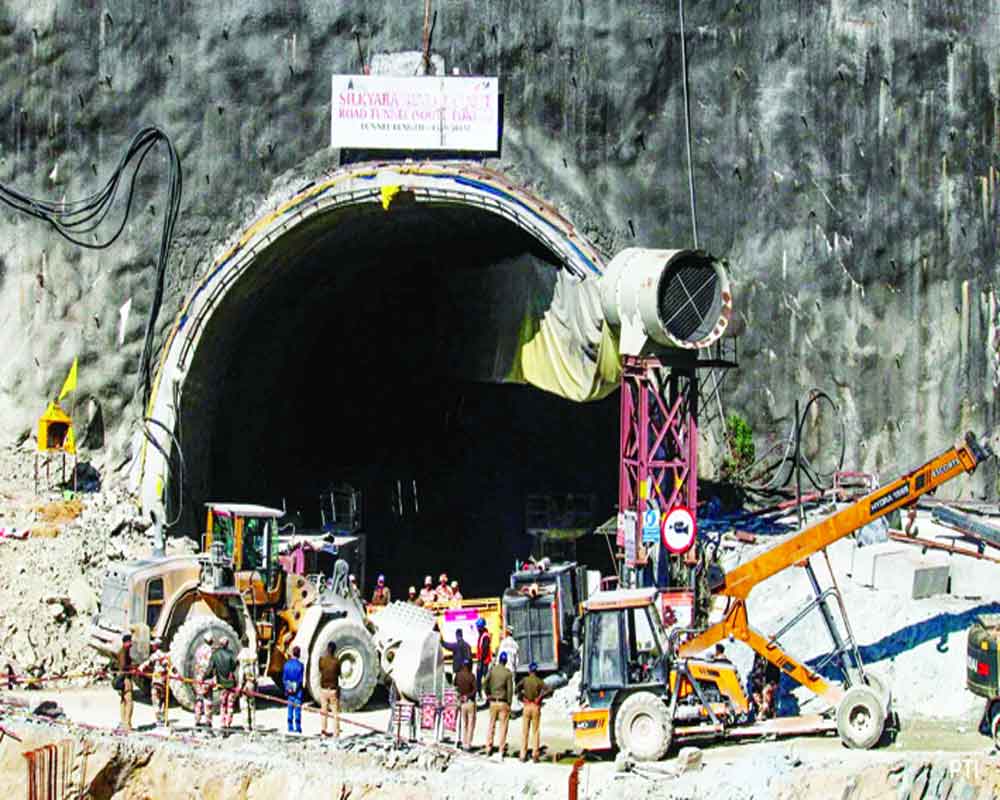With crores in damages and a tragic loss of lives, there is an urgent need for sustainable infrastructure strategies
India looks back at a year that presented challenges, particularly in addressing the infrastructural damages resulting from natural disasters. Subsistence in Joshimath incurred a cost of over Rs. 565 crores in damage. Subsequently, rivers surged beyond the danger mark, wreaking havoc on the infrastructure and properties of Uttarakhand, Punjab, Haryana, Himachal and Delhi. The toll was grim, with 208 lives lost, 621 houses destroyed, and over 4,200 houses partially damaged across these states. Heavy rains further exacerbated the situation, causing an estimated 10,000 crores in damages, while under-construction bridge collapses in Gujarat, Mizoram and Bihar claimed numerous lives.
Much like the Silkyara-Barkot tunnel collapse, this incident exemplifies the vulnerability of infrastructure especially in eco-sensitive zones that jeopardise lives. The devastation of infrastructure, loss of lives, and drained resources serve as stark reminders, emphasising that prioritising sustainable infrastructure isn't merely a choice but an immediate imperative. Without this focus, our investments and dreams of advancement risk being swept away or collapsing altogether.
Tackling the Core Issue Crucial to averting such incidents is addressing the core factors that might precipitate them, such as reconsidering the L1 tender bidding system. Adopting more effective practices can contribute positively by promoting quality over solely opting for the lowest bidder. This cost-centric approach often results in compromises on the quality of materials and construction practices which may lead to catastrophic failures.
Comprehensive Solutions To address the causes several measures can be implemented. Conducting thorough geological and geotechnical surveys before construction, consulting experts in the field, and focusing on the use of high-quality are crucial steps. Active adoption of Geosynthetic materials and locally available materials in construction can be a pivotal step toward achieving sustainable infrastructure goals. Geosynthetic materials not only meet rigorous environmental standards but also enhance cost and time efficiency in project execution. The strategic use of Geosynthetic materials not only aligns with rigorous environmental standards but also plays a crucial role in improving the overall durability and longevity of infrastructure projects, ensuring a resilient and sustainable built environment.
A shift in the construction approach, prioritising quality and safety over cost-cutting, is essential. Opting for the Quality and Cost Based Selection System (QCBS), commonly utilised for consultancy contracts, would offer greater benefits. Incorporating advanced technologies and monitoring systems can also enhance the overall integrity of structures. These sustainable practices will not only contribute to long-term resilience but also align with global efforts to combat climate change.
Forward-Looking Approach
In conclusion, the recent infrastructure incidents and challenges faced should serve as a compelling call to action, prompting the nation to revisit its construction practices. However, policymakers must approach this issue with a forward-looking perspective. The evolving technological landscape and heightened awareness regarding the importance of quality infrastructure provide a robust foundation for improvement. A collaborative effort involving government initiatives, industry partnerships, and public awareness holds the potential to reshape India's infrastructure paradigm.
By acknowledging and addressing the root causes, prioritising safety measures, and embracing sustainable construction methods, India can pave the way for a future where infrastructure not only withstands the test of time but also contributes significantly to the nation's overall progress.
(The writer is an expert on sustainable infrastructure; views are personal)


























